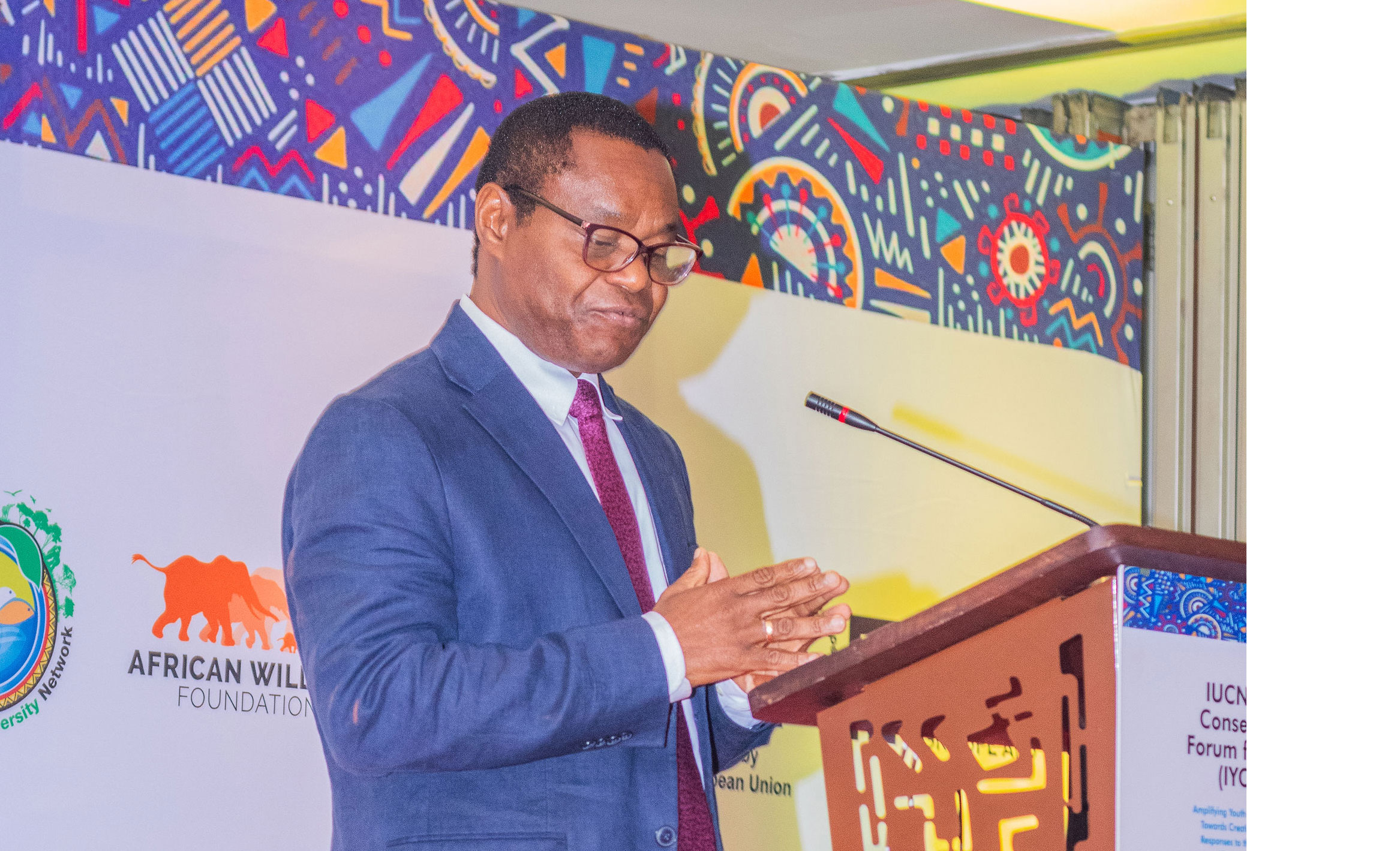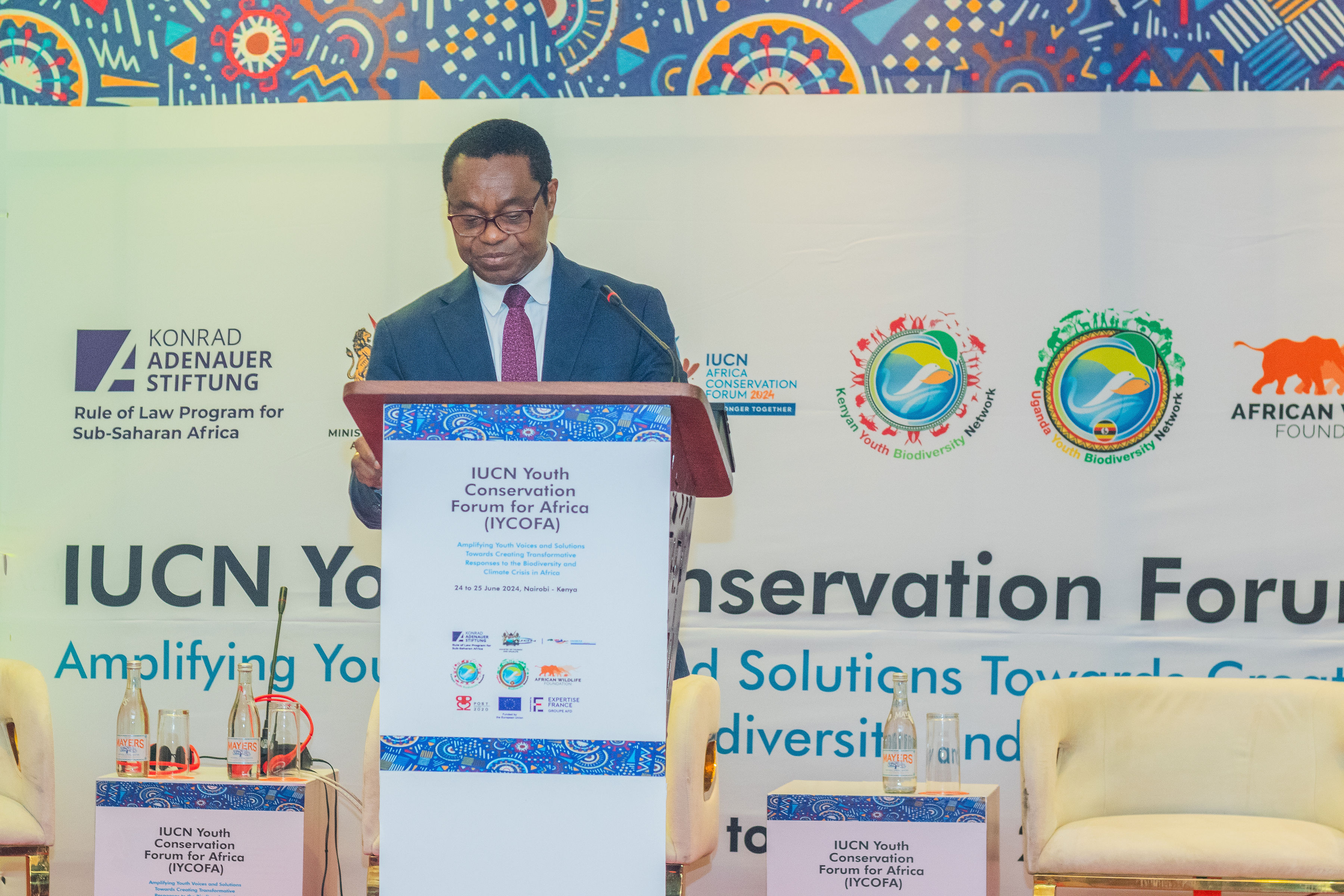AWF Champions for African Solutions at the Inaugural Conservation Forum

Fred Kumah delivers Keynote speech at the IUCN Youth Pre-Forum event.
The recent Africa Conservation Forum (ACF), held in Nairobi, Kenya, marked a significant turning point. Organized by the International Union for the Conservation of Nature (IUCN), the forum brought together a diverse range of stakeholders under the theme "African solutions for nature and people." Governments, civil society organizations, indigenous communities, local communities, and youth groups all participated, utilizing the IUCN platform to amplify their voices and influence regional and global conservation policies.
The African Wildlife Foundation (AWF) played a pivotal role throughout the forum. We spoke with Fred Kumah, AWF's Vice President of Global Leadership, to gain insights into AWF's significant contributions.
Q: AWF's presence at the ACF extended beyond the main forum. Can you elaborate on AWF's pre-forum activities?
Fred Kumah: AWF actively engaged in six key pre-conference activities, participating in 5 of the 6 (IPLCs, Finance, Food Systems, Biodiversity Economy, and Innovative Finance) and actively facilitating the organization of the Youth Pre-conference.
AWF took a supporting role in a youth-led initiative that compiled ten impactful conservation projects into a brochure. We delivered the keynote address and facilitated a field trip to Nairobi National Park for the young participants. By elevating their work, we emphasized the vital role young people play in shaping the future of conservation. This message was further solidified by Dr. Grethel Aguilar, IUCN Director General, who urged the youth to engage with the 20-year IUCN strategy.
AWF also championed the Africa Protected Area Directors (APAD) Network, sharing valuable insights from the March Victoria Falls meeting.
Q: In the main forum AWF actively participated in discussions around species conservation strategy. What specific contributions did the AWF team offer?
Fred: AWF played a key role in facilitating discussions focused on species conservation strategy and planning during the main sessions. Our Chief Scientist, Philip Muruthi, led a crucial half-day session shaping the IUCN's strategy for both continental and global species conservation. Furthermore, AWF actively participated in governance discussions, offering recommendations on how to improve IUCN's structure from an African perspective. Key topics included the crucial role of indigenous communities, sustainable resource use, conservation finance, and effective management of protected areas. By actively engaging in these dialogues and facilitating discussions, AWF highlighted the importance of collaboration across all stakeholders – a key takeaway from both the pre-conference activities and the ACF itself. This collaborative spirit lays the groundwork for advancing future conservation efforts and empowering the next generation of leaders.
Q: Looking back, what were some of the highlights and achievements for AWF at the forum?

Fred Kumah delivers Keynote speech at the IUCN Youth Pre-Forum event.
Fred: The forum provided a platform for AWF to showcase our leadership in youth engagement and protected area management through the APAD Network. We actively participated in discussions on species conservation, community involvement, and protected areas. The true highlight, however, was the collective spirit of the forum. The IUCN's ability to unite diverse stakeholders – government, academia, NGOs, and local communities – under a common conservation agenda offered a powerful vision for Africa's future. Notably, the launch of the 20-year IUCN strategy aligns with AWF's mission, emphasizing biodiversity and community empowerment alongside effective conservation practices. This unified approach holds immense promise for tackling climate change and building resilient communities across the continent.
Q: Looking forward, how will AWF leverage the momentum from the ACF to advance conservation in Africa?
Fred: We plan to bridge existing gaps by revisiting and formalizing recommendations for the upcoming World Conservation Congress. We will leverage our extensive networks, including the APAD Network, youth platforms, and civil society organizations, to develop a unified African position on key conservation issues. This proactive approach will ensure that Africa's voice resonates at the global level, leading to concrete actions that address the continent's specific conservation needs.
The ACF highlighted the importance of benefit-sharing mechanisms, addressing human-wildlife conflicts, and integrating development with natural spaces through effective spatial planning. As Africa continues to develop, these issues will become increasingly critical. AWF remains committed to working collaboratively to find solutions through effective planning and cooperation – a key theme that emerged from the successful ACF.